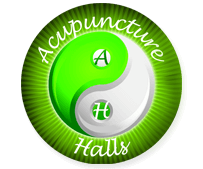
Photo credit to freepik.com
In the quest for improved health and well-being, many individuals turn to nutritional detox diets as a means to reset the body, eliminate toxins, and promote overall vitality. These diets emphasize the consumption of nutrient-dense foods and the exclusion of potentially harmful substances. In this comprehensive exploration, we delve into the principles, types, benefits, and considerations surrounding nutritional detox diets.
Understanding Nutritional Detox Diets
Nutritional detox diets are dietary regimens designed to support the body’s natural detoxification processes by emphasizing the consumption of foods rich in vitamins, minerals, antioxidants, and fiber while minimizing or eliminating processed foods, refined sugars, and potentially harmful additives. The goal is to enhance the body’s ability to eliminate toxins and promote overall health and well-being.
Types of Nutritional Detox Diets
1. Juice Cleanses
Juice cleanses involve the consumption of freshly pressed fruit and vegetable juices for a designated period, typically ranging from one to several days. These cleanses are believed to flood the body with essential nutrients while allowing the digestive system to rest.
2. Whole Foods Detox
This approach focuses on incorporating whole, nutrient-dense foods into the diet. It emphasizes fruits, vegetables, lean proteins, whole grains, and healthy fats, while avoiding processed foods, refined sugars, and artificial additives.
3. Raw Food Detox
The raw food detox diet centers around consuming uncooked and unprocessed foods. Proponents argue that raw foods retain more of their natural enzymes and nutrients, supporting the body’s detoxification processes.
4. Elimination Diets
These diets involve temporarily eliminating specific food groups or common allergens to identify potential sensitivities or intolerances. By reintroducing eliminated foods systematically, individuals can identify which ones may be contributing to health issues.
5. Intermittent Fasting
While not exclusively a detox diet, intermittent fasting involves cycling between periods of eating and fasting. Some believe that intermittent fasting supports detoxification by allowing the body to enter a state of autophagy, where cells remove damaged components.
Benefits of Nutritional Detox Diets
1. Elimination of Toxins
Nutritional detox diets are designed to support the body’s natural detoxification pathways, primarily through the liver and kidneys. By emphasizing nutrient-dense foods, these diets provide the essential building blocks for optimal detox function.
2. Improved Digestion
The exclusion of processed and refined foods, as well as potential allergens, may contribute to improved digestion. Whole foods rich in fiber can support a healthy gut and regular bowel movements.
3. Increased Energy Levels
Proponents of nutritional detox diets often report increased energy levels, attributed to the intake of nutrient-dense foods that provide sustained energy without the crashes associated with processed sugars.
4. Enhanced Mental Clarity
Some individuals experience improved mental clarity and focus during and after a nutritional detox. This may be linked to the elimination of processed foods and potential allergens that can contribute to brain fog.
5. Weight Management
Nutritional detox diets may contribute to weight loss, particularly in the short term, as individuals often reduce calorie intake, make healthier food choices, and eliminate processed, calorie-dense foods.
Considerations and Precautions
1. Individual Variability
The effectiveness of nutritional detox diets can vary among individuals. Factors such as age, overall health, and specific health conditions may influence outcomes.
2. Duration and Intensity
Extended or overly restrictive detox diets may pose risks and nutritional deficiencies. It’s crucial to choose a detox plan that aligns with individual health goals and consult with a healthcare professional or registered nutritionist.
3. Potential Detox Symptoms
Some individuals may experience temporary symptoms such as headaches, fatigue, or changes in bowel habits during a detox. These symptoms are often referred to as “detox reactions” and may indicate the body’s adjustment to dietary changes.
4. Sustainability
Long-term sustainability is a key consideration. Nutritional detox diets should be viewed as short-term interventions rather than prolonged solutions. Establishing sustainable, healthy eating habits is essential for long-term well-being.
Conclusion
Nutritional detox diets can be valuable tools for individuals seeking to jumpstart healthier eating habits, support natural detoxification processes, and promote overall well-being. While anecdotal evidence suggests benefits such as increased energy, improved digestion, and weight loss, it’s essential to approach these diets with mindfulness and individualization. Consulting with healthcare professionals or registered nutritionists can provide personalized guidance, ensuring that nutritional detox diets align with individual health goals and contribute to a balanced and sustainable approach to healthy living.
If you are interested in nutritional detox diets, visit the Acupuncture Halls clinic located in San Juan Capistrano, California. At the clinic, you can consult with a licensed nutritionist for assistance with your condition. Call 949-510-6333 or use this form to schedule an appointment.
